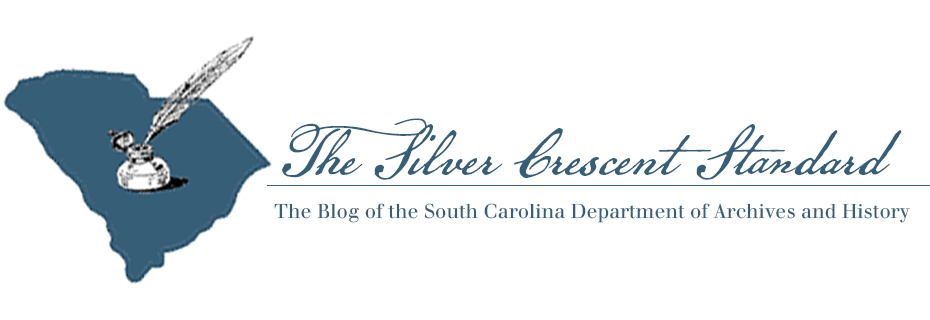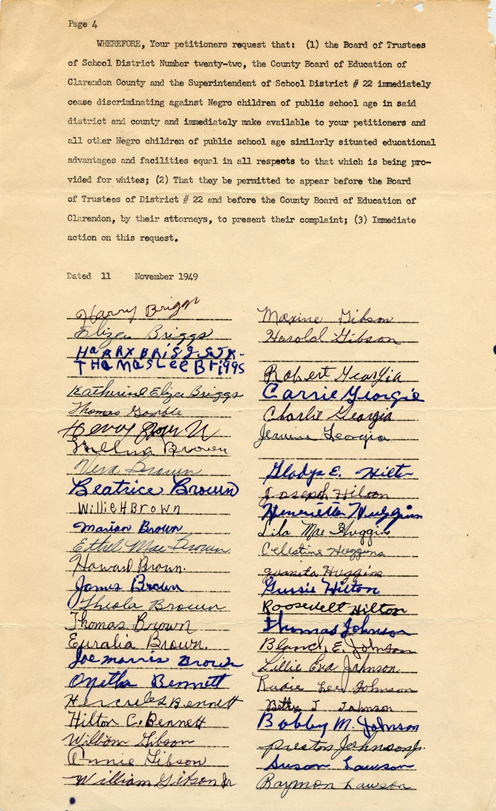

I grew up in the Ballentine, SC area. History was always a part of my reality. In fact, the road names in the area, such as Julius Richardson and Uldeen Sites were ancestors just a few generations removed. My grandfather created Wood Smoke Campground in the 1970s for something to do in his retirement, and I spent many summer nights chasing fireflies in those woods. My childhood home was right off the Peak exit from Interstate 26. When it was far more rural and before the days of cell phones, we were the house people would walk to when they had a car wreck on the interstate! Now, the house I grew up in is a used car dealership!
I have a library background, and I worked at both Lexington and Richland County libraries while as an undergraduate and while in graduate school. I received my MLIS Degree (Masters of Library and Information Science) from USC in Spring of 2007. I started working shortly thereafter in the summer of 2007 at the Archives as a State Records Analyst in the Records Management Division, and I’ve been in that position even since then.
Why did you want to work in Records Management?
Although my background was in public libraries, my personality, which is described as type A, lends well to a job in records management. I remember on my first day of work at the Archives, a few co-workers invited me to lunch. We went to a local deli, and before I began to eat, as I usually do, I “reconstructed” my sandwich to make it “right.” One of my new co-workers jokingly noted, “You’ll definitely fit in at the Archives!” A big part of records management is organization for efficient records handling.
What do you do as a State Records Analyst and what is your favorite part of the job?
As a State Records Analyst, I assist all state agencies and state (supported) colleges and universities, including state technical colleges with their records management. Some of the tasks include: organizing/inventorying records; creating and/or revising records retention schedules; and disposition of records based on those retention schedules – which means destruction of non-permanent records or transfer to the State Archives for permanently-valuable records. I also visit state agencies and colleges/universities to train their staff on these skills.
In fact, one of the most rewarding aspects of my job is when during one of these training sessions or even just a phone call from an overwhelmed state employee tasked with handling records management, I note a change in their demeanor as we are discussing records management. I can hear a calm emerge in the voice of the previously overwhelmed person as they seem to better understand how to handle their records. Oftentimes, I will even see attendees in trainings nodding along. It’s exciting for me to see that they are learning records management right in front of my own eyes!
As part of my job, I am able to work with all types of people. Even though my contacts are all state employees, they range from agency heads to mailroom clerks, and I stress that all levels of staff need to understand and appreciate the importance of records management. Some agencies are more active and responsive to records management, and others not as much. Unfortunately, those are the ones who are going to fully appreciate records management when a disaster (or lawsuit – which could be just as disastrous) occurs, and they can’t locate or loose valuable records!
When people ask me to explain my job, I joke that, “I make history…100 years from now!” since I mostly assist state agencies with their current records, any of those records that are permanently transferred to the Archives will most likely be considered important historical records in the distant future. In fact, in the training sessions I present to agency employees, I try to stress that idea to them. I remind them not to get bogged down in what may seem like day to day mundane work because the records they are creating and/or managing may change the future of South Carolina.
Do you have a favorite collection or document and why is it your favorite?

Who is your favorite historical figure or time period?
Similarly, my favorite historical time period is recent/modern history. Happenings that would have been considered current events while I was in school, but that I am now able appreciate on a different level as an adult. For example, in sixth grade, I remember watching the Berlin Wall coming down on television, and I knew that it was an event that was changing the course of history, but it “just was.” However, as an adult, I have since read about the affect of that Wall to the German people, such as instances of families that literally lived across the street being separated by their government or seeing images of people as young as teens, dying to cross the wall in the German country-side. History has become more than just a far-removed political movement.
As I noted at the beginning of this bio, history has always been a part of my personal reality - even those events happening across the world. As a child, my mom was an “army brat” living in Germany post World War II when the wall came up, and my generation watched it come down and watched the world change as a result. Who knows what other history I may be part of as I help manage South Carolina’s records?
